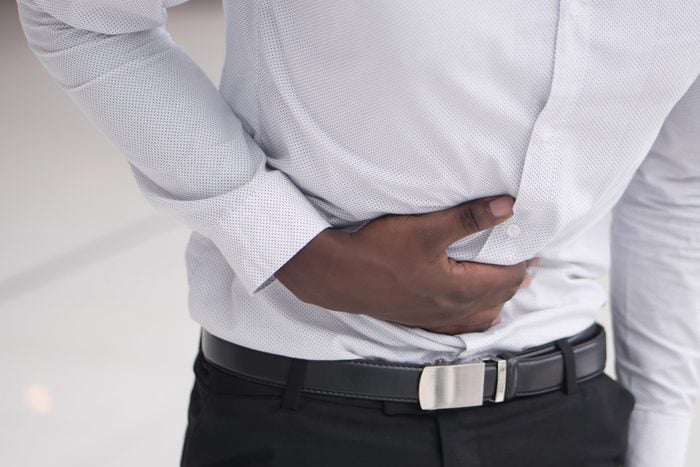
What is SIBO?
Although your gut is loaded with bacteria, your small intestine has relatively low levels. That’s why small intestinal bacterial overgrowth—SIBO—is an issue. Not only is the condition uncomfortable, it can also lead to nutritional deficiencies and harm the lining of your gut—so it’s important to be properly diagnosed and treated.
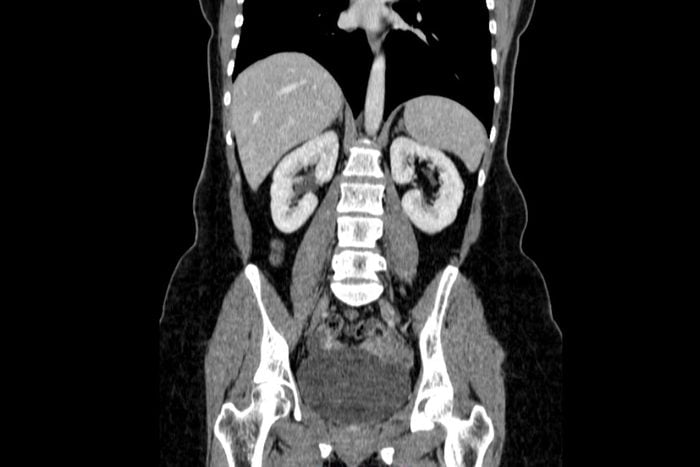
What causes SIBO?
SIBO symptoms usually point to a problem with movement in the small intestine. “Every two hours, your small bowel initiates something called a ‘housekeeper wave,’ which sweeps through the small bowel and dumps everything, including excessive amounts of bacteria, residual food, digestive enzymes, and bowel secretions,” said gastroenterologist Ali Rezaie, MD, in Health magazine. If an underlying illness, infection, or medication interferes with the “wave,” bacteria can build up.
People with diabetes, lupus, and digestive diseases are at higher risk of developing SIBO symptoms, as are those who’ve had gastrointestinal surgery or who take certain medications such as narcotics, proton pump inhibitors, and frequent antibiotics, according to Johns Hopkins Medicine.
Worried you may have it? Check out the SIBO symptoms below.
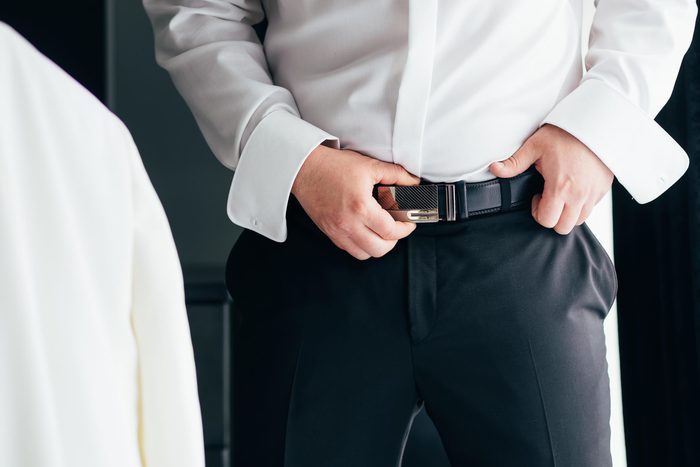
Bloating and gas
The excess bacteria in the small intestine feed off of the food you eat—especially sugars and other carbohydrates. They produce hydrogen and methane gases as part of their own digestion process, which can then lead to bloating and gas. “Many people with SIBO experience an almost immediate sense of fullness, a visibly swollen abdomen, and bloating after eating,” says Kate Scarlata, RDN, a registered dietitian who specializes in digestive disorders. “The abdominal distention can be quite significant, appearing similar to that of a six-month-pregnant woman. Gas often feels trapped and is difficult to pass. This is because the gas is so high up in the small bowel that it has a long way to go before it can exit via the colon.” Learn to spot the difference: Here are 8 normal—and 4 worrisome—types of bloating.
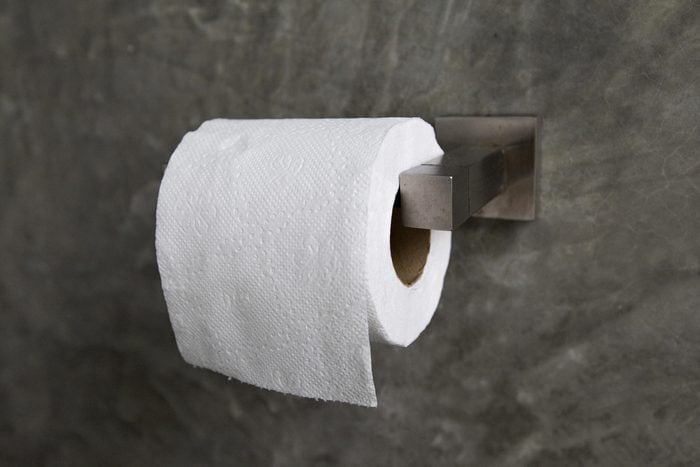
Diarrhea
SIBO often leads to more-frequent-than-normal bowel movements. Studies suggest that between 33 and 67 percent of people with chronic diarrhea have SIBO. This is different from a short bout of diarrhea that might be a result of food poisoning. “When loose stools—an increase in the frequency, volume, and consistency of stool—happens acutely, it can be the sign of an infection of the gastrointestinal tract,” Susan Ramdhaney, MD, told Reader’s Digest.
Most acute infections of this kind don’t require treatment and simply run their course. But sometimes a foodborne illness or stomach bug can lead to SIBO symptoms. “Foodborne illness may lead to a disruption in the movement of the small intestine allowing bacteria to overgrow,” explains Scarlata. Learn the difference between a stomach bug and food poisoning.
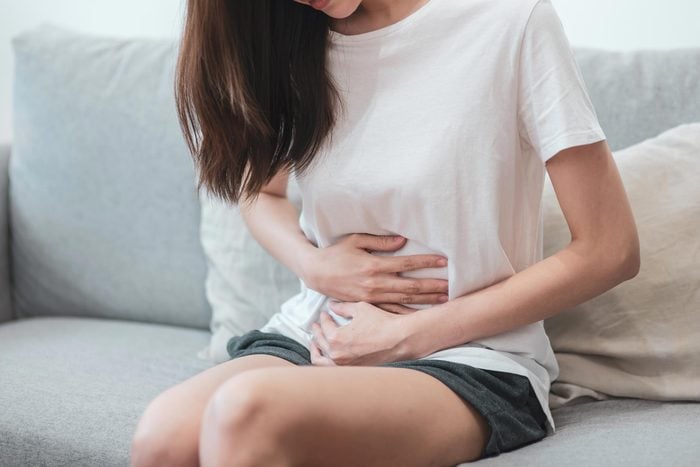
Stomach pain
“Abdominal cramping and pain can be quite significant in SIBO,” says Scarlata. The pain usually arises because of spasms that happen in the large intestine while having a bowel movement, “or from the stretching and movement of the small intestine full of trapped gas and intestinal fluids,” she explains.
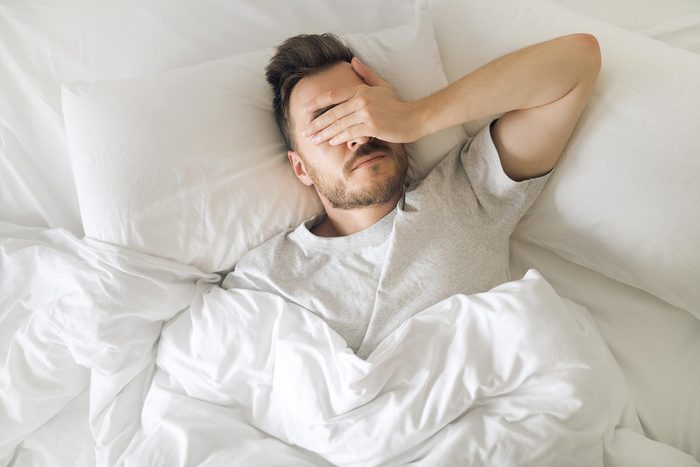
Fatigue
Many people with SIBO are low in vitamin B12—not because they don’t get enough in their diets, but because excess bacteria in the small intestine “bind” to the vitamin in your food, preventing it from being absorbed into your bloodstream, writes Amy Myers, MD. Vitamin B12 is key to the production of red blood cells that carry energy-filled oxygen all over your body, she explains. Fatigue is just one of the signs that you have an unhealthy gut.
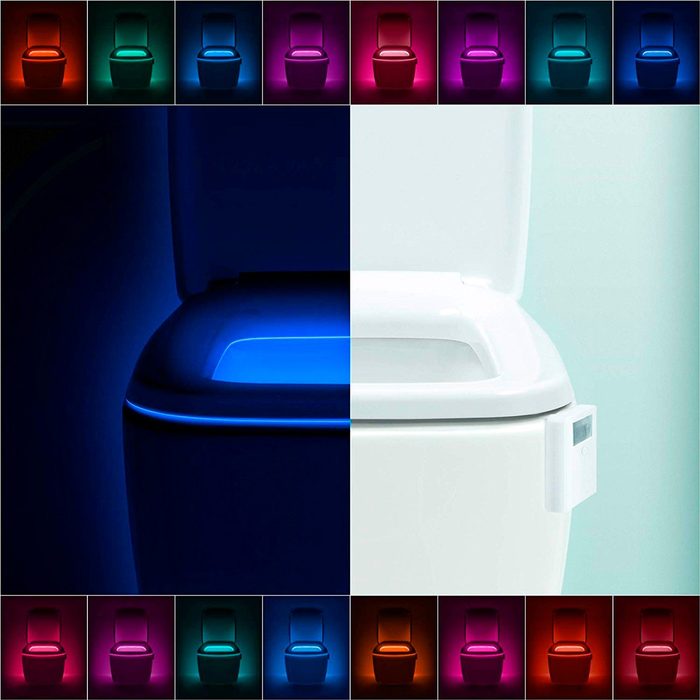
Strange stools
Depending on what types of bacteria have colonized the small intestine, some people with SIBO may have trouble breaking down fats that they eat. “Some microbes are capable of deactivating bile acid,” explains Scarlata. “Bile acid is like Dawn dishwashing liquid in the gut—its role is to help degrade fat into small particles so they can be digested and absorbed by the intestine. If bile is deactivated, fat digestion is impaired, leading to fat in the stools that tend to be odorous, float, or difficult to flush.”

Vitamin deficiency
If SIBO goes untreated and is severe, it can lead to vitamin deficiencies because “the bacteria can consume some of the nutrients you should be getting,” gastroenterologist Eamonn Quigley, MD, told Health magazine. As noted above, SIBO can also interfere with fat digestion, and several really important vitamins—including A, D, E, and K—can only be broken down and absorbed in the presence of fats. Vitamin B12, iron, vitamin A, and vitamin D are common deficiencies associated with SIBO.

What to do about it
Not all people with small intestinal bacterial overgrowth have all of the symptoms of SIBO. “The symptoms of small intestinal bacterial overgrowth can be variable person to person,” says Scarlata. “This may be due to the fact that the type of microbes in the small intestine can be vastly different in each individual.” SIBO is often diagnosed by a breath test that looks for excess hydrogen or methane gases released by the overgrown bacteria. Treatment usually includes specific antibiotics to target bacteria in the small intestine, and a temporary low-sugar, low-starch diet to starve the germs of their favorite energy sources. If you think you may have SIBO see a gastroenterologist or other healthcare provider. Next, find out more signs you might have an unhealthy gut.